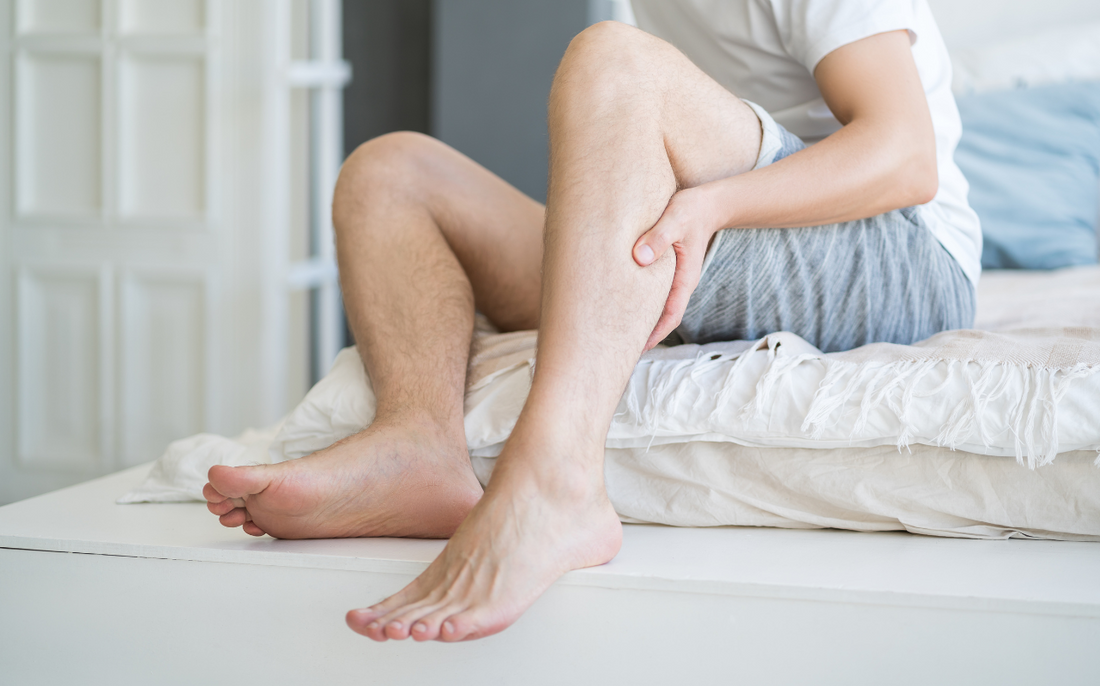Don’t let painful muscle cramps disrupt your day! Explore the science behind muscle cramping and discover natural solutions for relief.
Muscle cramps are a very common but painful sensation, along with uncontrollable spasms. Typically, the calf and foot muscles are susceptible to cramping, but in theory any muscle can be afflicted. In general, cramps don’t last too long and normally return to normal in a matter of minutes.
Causes of Cramps
Cramping can happen for a number of reasons, from over-exertion to nutrient deficiency. They are usually harmless but can be a symptom of other, more serious conditions, such as sciatica. If you are prone to cramping regularly, or you find your cramps persist for long periods of time or are immensely painful, it is recommended to consult with your healthcare professional for guidance.
- Dehydration: It is the chemicals in your muscles, including water, along with minerals and electrolytes that allow them to contract for movement. Having the correct balance is important to maintain healthy muscle movement.
Important compounds in the muscle operation process, such as calcium and sodium, can be thrown out of balance by vomiting, diarrhea or general dehydration.
Other Risk Factors
There are several factors that can exacerbate cramping, or make it more common. Most of these are related to blood flow around the affected area, but also include:
- Poor diet
- Dehydration
- Muscle tiredness
- Injury / exertion of cold muscles
How to Treat Cramps
Muscle movement – small movement of the cramping muscle can be used to improve blood flow to the area, you can do this in whatever way feels best in the situation, you could massage the area, extend and retract the muscle, or engage in some gentle stretches to loosen the tension.
Ice pack or heating pad – either temperature extremes can help the muscle to relax and relieve tension in a targeted area. If you are finding your cramp to be persistent, try applying an ice pack or heat pad to the area, such as a hot water bottle.
Medications – in the event that your cramps are becoming a regular problem, interrupting your day-to-day life, it is definitely worth consulting your healthcare professional, who may recommend a medication that can help to prevent or relieve your cramps.
Lifestyle changes
In addition to alleviating the pain of your cramps, there are also some precautions you can take to reduce the risk of cramping in the first place. By adding some of these small habits to your daily life, you could significantly reduce the regularity and intensity of your cramps.
- Practising stretching regularly can help with your mobility, flexibility and general fitness. Having flexible joints and muscles is also great for longevity, making you less susceptible to injury later in life.
- Maintaining a balanced diet on a regular basis can make sure that your body is getting the adequate nutrients it requires, including all of the electrolytes and minerals necessary for healthy muscle movement.
- Similarly, by making sure your water intake is consistently high, you can avoid that risk of dehydration which, as discussed previously, is a huge contributor to cramps.
- Wearing comfortable footwear is a simple switch you can make if you find yourself prone to foot cramps. You may be surprised to know that wearing high heels can actually cause cramp, as they don’t allow for the natural flex and movement of the foot and can cause the muscle to become fatigued.
- Regular massages, along with hot baths and showers, can reduce tension in the muscles, allowing them to relax after a long period of rest of intense training.
To summarise
To conclude this blog, there are several factors that can cause cramping, and if you are finding regular cramps are interfering with your daily life, then you should consult a healthcare professional.
Having said this, there are many habits you can implement in your daily life to reduce the risk of suffering from muscle cramps, including keeping hydrated, maintaining a healthy diet and exercise routine, and engaging in regular stretching.
At Etanics, we aim to provide our customers with the information necessary to make decisions for their health and wellbeing. We always advise that you consult your healthcare provider if you have any queries or questions about your health.

